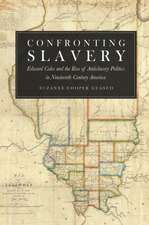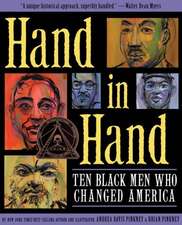War and Society in the American Revolution: Mobilization and Home Fronts
Editat de John Resch, Walter Sargenten Limba Engleză Hardback – 14 noi 2006
The War for Independence touched virtually every American. It promised liberty, the opportunity for a better life, and the excitement of the battlefield. It also brought disappointment, misery, and mourning. In this collection of original essays that highlight the variety and richness of recent research, eleven leading historians investigate the diverse experiences of Americans from North to South, from coast to backcountry, from white townsfolk to African American slaves.
Revolutionary ideology may have inspired some soldiers in the Continental Army, but as the case studies in this volume document, the men of New England also weighed family commitments, economic concerns, and local politics when deciding whether or not to enlist in the militia. Slaves joined the army believing the war would bring them personal freedom while women served as auxiliaries or as camp followers. Those left behind defended the home front—unless the war took their homes and made them refugees. On the frontier, politically astute Native Americans weighed the relative advantages to themselves before deciding to support the patriots or the Crown.
By bringing together the perspectives of soldiers, women, African Americans, and American Indians, War and Society in the American Revolution gives readers a fuller sense of the meaning of this historical moment. At the same time, these essays show that instead of unifying Americans, the war actually exacerbated social divisions, leaving unresolved the inequalities and tensions that would continue to trouble the new nation.
Revolutionary ideology may have inspired some soldiers in the Continental Army, but as the case studies in this volume document, the men of New England also weighed family commitments, economic concerns, and local politics when deciding whether or not to enlist in the militia. Slaves joined the army believing the war would bring them personal freedom while women served as auxiliaries or as camp followers. Those left behind defended the home front—unless the war took their homes and made them refugees. On the frontier, politically astute Native Americans weighed the relative advantages to themselves before deciding to support the patriots or the Crown.
By bringing together the perspectives of soldiers, women, African Americans, and American Indians, War and Society in the American Revolution gives readers a fuller sense of the meaning of this historical moment. At the same time, these essays show that instead of unifying Americans, the war actually exacerbated social divisions, leaving unresolved the inequalities and tensions that would continue to trouble the new nation.
| Toate formatele și edițiile | Preț | Express |
|---|---|---|
| Paperback (1) | 234.79 lei 6-8 săpt. | |
| Northern Illinois University Press – 14 noi 2006 | 234.79 lei 6-8 săpt. | |
| Hardback (1) | 725.43 lei 6-8 săpt. | |
| Northern Illinois University Press – 14 noi 2006 | 725.43 lei 6-8 săpt. |
Preț: 725.43 lei
Preț vechi: 993.74 lei
-27% Nou
Puncte Express: 1088
Preț estimativ în valută:
138.83€ • 150.75$ • 116.62£
138.83€ • 150.75$ • 116.62£
Carte tipărită la comandă
Livrare economică 23 aprilie-07 mai
Preluare comenzi: 021 569.72.76
Specificații
ISBN-13: 9780875803661
ISBN-10: 0875803660
Pagini: 326
Dimensiuni: 152 x 229 x 28 mm
Greutate: 0.69 kg
Ediția:1
Editura: Northern Illinois University Press
Colecția Northern Illinois University Press
ISBN-10: 0875803660
Pagini: 326
Dimensiuni: 152 x 229 x 28 mm
Greutate: 0.69 kg
Ediția:1
Editura: Northern Illinois University Press
Colecția Northern Illinois University Press
Recenzii
"A valuable addition to scholarship about the American Revolution ... deserves a wide academic readership."—The Journal of American History
“This important collection of essays showcases many of the extraordinary ways in which a conflict that began as a colonial rebellion eventually generated an American revolution.”—American Historical Review
“Some of the best new scholarship on the American Revolutionary War. Readers ... will find A collection from some of the best scholars in the field.”—Military History
“This important collection of essays showcases many of the extraordinary ways in which a conflict that began as a colonial rebellion eventually generated an American revolution.”—American Historical Review
“Some of the best new scholarship on the American Revolutionary War. Readers ... will find A collection from some of the best scholars in the field.”—Military History
Cuprins
Table of Contents
Preface—War and Society in the American Revolution: Mobilization and Home Fronts John Resch and Walter Sargent
Introduction—Looking Backward, Looking Forward: War and Society in Revolutionary America John Shy
Part I--Soldiers: Motivation and Mobilization
1—"Town Born, Turn Out": Town Militias, Tories, and the Struggle for Control of the Massachusetts Backcountry Charles Neimeyer
2—The Massachusetts Rank and File of 1777 Walter Sargent
3—The Revolution as a People's War: Mobilization in New Hampshire John Resch
4—"Fit for Common Service?": Class, Race, and Recruitment in Revolutionary Virginia Michael A. McDonnell
5—Claiming Their Due: African Americans in the Revolutionary War and Its Aftermath Judith L. Van Buskirk
Part II--Communities: Retribution, Allies, and Women at War
6—Restraint and Retaliation: The North Carolina Militias and the Backcountry War of 1780–1782 Wayne E. Lee
7—Incompatible Allies: Loyalists, Slaves, and Indians in Revolutionary South Carolina Jim Piecuch
8—The Dilemmas of Alliance: The Oneida Indian Nation in the American Revolution Karim M. Tiro
9—Wives, Concubines, and Community: Following the Army Holly A. Mayer
10—"we bear the Yoke with a reluctant impatience": The War for Independence and Virginia's Displaced Women Joan R. Gundersen
Historiographic Essay
11—Changing Meanings of the American Revolution: An Overview, 1789–2006 John Resch and Walter Sargent
List of Contributors
Index
Introduction—Looking Backward, Looking Forward: War and Society in Revolutionary America John Shy
Part I--Soldiers: Motivation and Mobilization
1—"Town Born, Turn Out": Town Militias, Tories, and the Struggle for Control of the Massachusetts Backcountry Charles Neimeyer
2—The Massachusetts Rank and File of 1777 Walter Sargent
3—The Revolution as a People's War: Mobilization in New Hampshire John Resch
4—"Fit for Common Service?": Class, Race, and Recruitment in Revolutionary Virginia Michael A. McDonnell
5—Claiming Their Due: African Americans in the Revolutionary War and Its Aftermath Judith L. Van Buskirk
Part II--Communities: Retribution, Allies, and Women at War
6—Restraint and Retaliation: The North Carolina Militias and the Backcountry War of 1780–1782 Wayne E. Lee
7—Incompatible Allies: Loyalists, Slaves, and Indians in Revolutionary South Carolina Jim Piecuch
8—The Dilemmas of Alliance: The Oneida Indian Nation in the American Revolution Karim M. Tiro
9—Wives, Concubines, and Community: Following the Army Holly A. Mayer
10—"we bear the Yoke with a reluctant impatience": The War for Independence and Virginia's Displaced Women Joan R. Gundersen
Historiographic Essay
11—Changing Meanings of the American Revolution: An Overview, 1789–2006 John Resch and Walter Sargent
List of Contributors
Index
Descriere
The War for Independence touched virtually every American. It promised liberty, the opportunity for a better life, and the excitement of the battlefield. It also brought disappointment, misery, and mourning. In this collection of original essays that highlight the variety and richness of recent research, eleven leading historians investigate the diverse experiences of Americans from North to South, from coast to backcountry, from white townsfolk to African American slaves.
Revolutionary ideology may have inspired some soldiers in the Continental Army, but as the case studies in this volume document, the men of New England also weighed family commitments, economic concerns, and local politics when deciding whether or not to enlist in the militia. Slaves joined the army believing the war would bring them personal freedom while women served as auxiliaries or as camp followers. Those left behind defended the home front—unless the war took their homes and made them refugees. On the frontier, politically astute Native Americans weighed the relative advantages to themselves before deciding to support the patriots or the Crown.
By bringing together the perspectives of soldiers, women, African Americans, and American Indians, War and Society in the American Revolution gives readers a fuller sense of the meaning of this historical moment. At the same time, these essays show that instead of unifying Americans, the war actually exacerbated social divisions, leaving unresolved the inequalities and tensions that would continue to trouble the new nation.
Revolutionary ideology may have inspired some soldiers in the Continental Army, but as the case studies in this volume document, the men of New England also weighed family commitments, economic concerns, and local politics when deciding whether or not to enlist in the militia. Slaves joined the army believing the war would bring them personal freedom while women served as auxiliaries or as camp followers. Those left behind defended the home front—unless the war took their homes and made them refugees. On the frontier, politically astute Native Americans weighed the relative advantages to themselves before deciding to support the patriots or the Crown.
By bringing together the perspectives of soldiers, women, African Americans, and American Indians, War and Society in the American Revolution gives readers a fuller sense of the meaning of this historical moment. At the same time, these essays show that instead of unifying Americans, the war actually exacerbated social divisions, leaving unresolved the inequalities and tensions that would continue to trouble the new nation.







